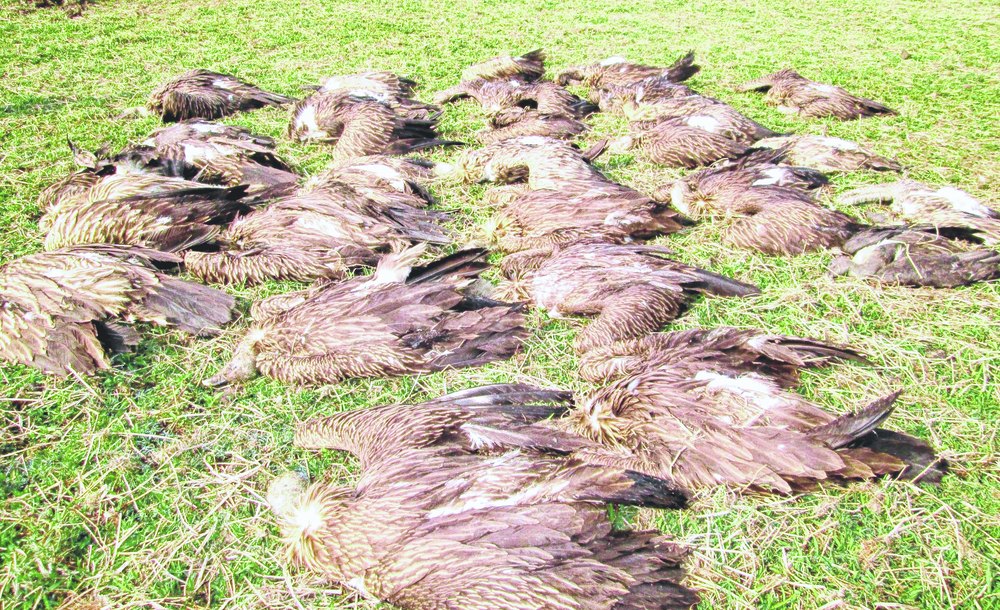
Guwahati, March 8: Assam looks to be turning into a vulture graveyard, with more than 100 vultures poisoned so far this year.
Last week alone, 54 vultures died in two different districts of Upper Assam, with vulture experts calling for stringent action and the need for a common platform for stakeholders to discuss the issue.
In January, 50 vultures were poisoned in a village in Sivasagar district.
"It would not be wrong to say that the state is turning into a vulture graveyard. Stringent action is needed and there is need for the government, forest department, police and the people to come together. Our vulture safe zone teams are already carrying out awareness programmes. We can help and share knowledge with all who want to work to save vultures," Sachin P. Ranade, the manager of the Vulture Conservation Breeding Centres, West Bengal and Assam, told The Telegraph .
The Assam centre, established in 2007, is a collaborative project of Bombay Natural History Society (BNHS) and the state forest department.
He said all these incidents are unintentional cases of poisoning.
"Based on my experience, since 2002, the poisoning is done by farmers and cattle owners. The sequence begins when the cattle owner loses any of his cattle or goat to dog bite. The cattle owner, blind with anger, decides to kill the dog. The chemicals - especially pesticides that are used in agriculture - are sprayed on the dead cattle to kill dogs. But, unfortunately, vultures feed on the carcass that was poisoned, and die in large numbers. In this way, it causes vulture deaths. The farmer/cattle owner may not intend to kill vultures, but ultimately becomes a cause of vulture mortality," he said.
He added that each year, more than 100 vultures are dying in different places of the state. Each incident, on an average, kills around 25 vultures.
"There could be some cases, which are not even reported," he said.
The Bombay Natural History Society has started awareness and advocacy programmes to stop such incidents under the "vulture safe zone programme".
"I am optimistic but at the same time aware of the reality. Our efforts have certainly yielded some results, but the challenges are growing day by day. More lethal pesticides and more intolerance to wildlife and the increasing human population could be blamed for some of the problems," the manager added.
He said for a long time, society considered vultures bad omen.
"Even in this era, many people do not understand the vulture's role in clearing out bodies and keeping the environment healthy," he added.
Though 99 per cent of vultures - white-backed and slender-billed ones - have been lost, the state is still attracting Himalayan griffons, the winter visitors, which means it still has a good habitat and food.
"However, this kind of poisoning will also bring down the winter visitors' population. If all species of vultures vanished, there would be consequences like the rise of different communicable diseases and an increase in problematic scavengers like feral dog, rats and flies," he said.

